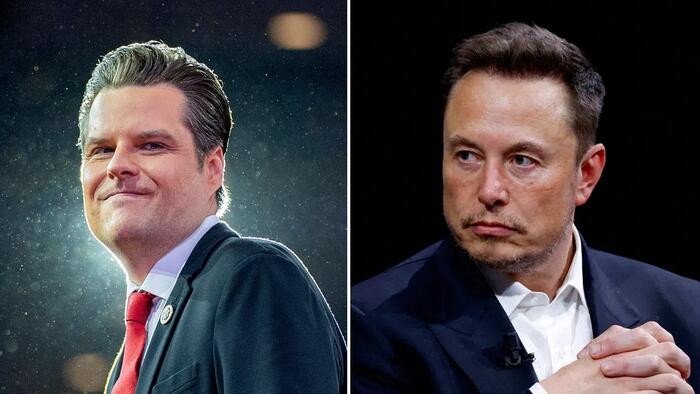Elon Musk has publicly defended Rep. Matt Gaetz amidst ongoing scrutiny regarding sexual misconduct allegations as Gaetz prepares for his confirmation as attorney general under President-elect Donald Trump. In a post on social media platform X, Musk praised Gaetz by highlighting three key qualities he believes make him suited for the role: intelligence, resilience, and a propensity for holding powerful figures accountable. Musk characterized Gaetz as a necessary force for change, likening him to the fictional character Judge Dredd, who is known for dispensing justice in a corrupt system. Musk’s endorsement contributes to a growing conversation around Gaetz’s potential impact on law enforcement and justice reform, should he take office.
Musk also addressed the allegations against Gaetz directly, asserting that they should be viewed as insignificant. Drawing from legal principles, he emphasized the presumption of innocence until proven guilty, a cornerstone of the American legal system. Musk suggested that if Attorney General Merrick Garland had sufficient evidence to prosecute Gaetz, he would have done so, implying that the failure to bring charges indicates a lack of merit to the claims against Gaetz. His statements reinforce an unwavering support for Gaetz and illustrate Musk’s broader perspective on justice and accountability at the governmental level.
The allegations against Gaetz have not only sparked Musk’s interest but have also prompted inquiries from lawmakers across party lines, with senators seeking further details about an ongoing House ethics investigation. This probe reportedly includes allegations that Gaetz engaged in sexual activities with a minor, which could have serious implications for his nomination. While Gaetz maintains his innocence, the investigations and public scrutiny surrounding these claims could significantly influence his confirmation process as attorney general.
The Department of Justice conducted its investigation into Gaetz but ultimately determined in February 2023 that there was insufficient evidence to file charges. This decision left Gaetz free from criminal prosecution, but it did little to quell the ongoing ethical concerns raised by the allegations, which continue to linger over his political career. Supporters, like Musk, argue that these unresolved allegations should not overshadow Gaetz’s qualifications or hinder his potential contributions in a high-profile governmental role, while his critics remain skeptical about his capability to hold office given the ongoing investigations.
Musk’s outspoken support for Gaetz illustrates a broader trend among some Republican figures who rally around the congressman in the face of allegations, framing them as politically motivated attacks rather than legitimate concerns. This dynamic highlights the polarized landscape of American politics, where individual narratives and partisan loyalties often heavily shape public opinion and political discourse. Gaetz’s position has become a litmus test for loyalty and resilience within the party, with proponents emphasizing the need for bold leadership in justice reform.
As the confirmation process unfolds, the implications of Musk’s endorsement and the allegations against Gaetz will likely resonate within the Senate chambers. The outcome will be a touchstone for conversations about ethics, governance, and the standards expected from public officials in a time when accountability is critically scrutinized. Whether Gaetz can navigate through the complex web of allegations and ultimately secure his position as attorney general will play a significant role in shaping the direction of justice policies in the forthcoming Trump administration. The stakes are high not only for Gaetz but for the Republican party and the legal system’s integrity as a whole.

